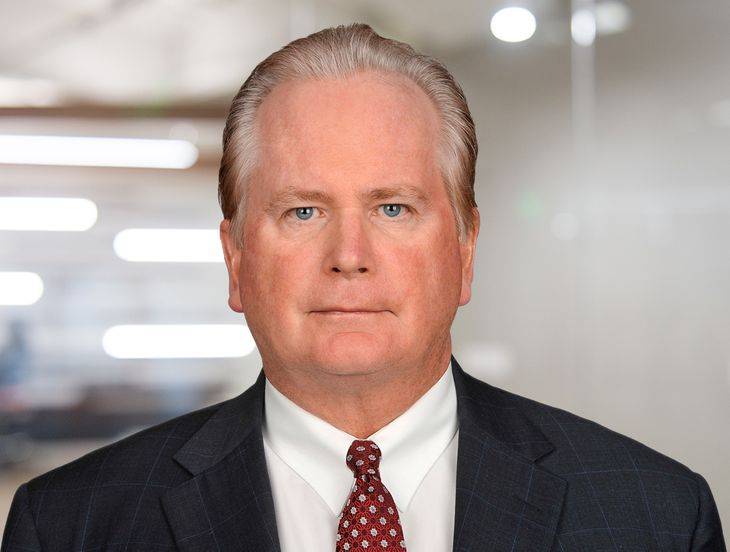California Court Rules That Food And Beverage Service Charges May Qualify As Gratuities
Insights
11.04.19
A California appellate court just held that mandatory service charges added by banquet facilities to their contracts may need to be paid to banquet service employees essentially as a form of a gratuity. The October 31, 2019 decision changes up what some considered to be a settled area of law and may require you to immediately adjust your pay practices in order to get into compliance.
The Facts And Main Arguments
In O’Grady v. Merchant Exchange Productions, Inc., the employer added a 21% service charge to all banquet contracts for food and beverages. The company did not pay any of the service charge to servers. Rather, it distributed some of the money to managers and non-service personnel and retained the rest. Plaintiff Lauren O'Grady worked as a banquet server and bartender at the Julia Morgan Ballroom in San Francisco, a facility owned and operated by Merchant Exchange Productions. She sued her employer claiming the practice described above violated Labor Code section 351 and also amounted to intentional interference with advantageous relations, breach of implied contract, and unjust enrichment.
The employer argued that no such legal claims could be pursued, relying on two prior cases: Searle v. Wyndham International, Inc. and Garcia v. Four Points Sheraton LAX. Both of these cases contained language stating that mandatory service charges are not gratuities under Labor Code section 351. That statute provides that all tips and gratuities left by customers for service employees are solely the property of the employee and that employers may not take any portion of such gratuities. The lower court agreed with Merchant Exchange Productions and dismissed the claim.
Court Of Appeal Surprises Employer And Creates New Standard
But the First District Court of Appeal was not content to apply the language in Searle and Garcia. It distinguished those cases, observing that Searle did not involve section 351 at all but rather a customer’s complaint that a service charge was deceptive. It also noted that Garcia actually upheld a City of Los Angeles ordinance requiring that service charges imposed by hotels in the “LAX Corridor” be paid to employees performing the services.
The appellate court maintained that to define gratuities only as those amounts of money left voluntarily by a patron for a service employee is to take too narrow a view. It noted that tip pooling, which is lawful in California, does not reflect the customer’s preference as to whom should be rewarded and by how much for the service provided. The court also recognized that many restaurants impose a mandatory gratuity for larger parties and most cruise lines impose a mandatory charge per day for gratuities for the ship’s crew. “In short,” commented the court, “the notion of an involuntary gratuity has perhaps become more widespread and accepted than in the past.”
The court concluded that a mandatory service charge may qualify as a gratuity as a matter of law. But because it was reviewing a case that the lower court dismissed on a “demurrer” (an early motion to dismiss the case), it had no facts before it from which it could develop a more specific rule for when a service charge will qualify as a gratuity. It did not address the situation where a portion of a service charge is specifically designated as a gratuity for employees, for example, and the remainder is reserved for management. Instead, it sent the case back to the lower court for further proceedings.
What Does This Mean For California Employers?
The court’s holding is broad enough to suggest that unspecified service charges imposed by hotels, banquet facilities, conference halls, event centers, and similar businesses may have to be paid to employees providing the service. Mandatory service charges in other hospitality industry contexts, such as in-room dining, would likely fall within the O’Grady court’s ruling as well.
Historically, the California Labor Commissioner had taken the position that a service charge is not a gratuity. Recently, however, the section in its Enforcement Manual on service charges was changed to add a discussion of the Garcia case discussed above. The Labor Commissioner, moreover, requested that the O’Grady court publish its decision. We should expect that the Labor Commissioner might well change its position after the O’Grady decision and maintain that certain service charges in the hospitality industry must be paid to the employees performing the services.
There may also be factual circumstances where the O’Grady decision may be deemed inapplicable. For example, if an outside caterer provides food and beverage for an event at a facility, and charges the facility a service or similar charge to recover amounts for labor, administrative costs, or other costs associated with the providing of services. Additionally, if an employer uses explicit language indicating that the service charge is not intended to be a gratuity, that will likely also impact the analysis.”
Hospitality employers in California therefore should immediately review their service charge practices to ensure that where a general service charge is imposed the money is paid to the employees performing the services and is not paid to managers or retained by the employer. Further developments in the case law and any changes in the Labor Commissioner’s position should be monitored closely to determine to what extent service charges might still be lawfully apportioned between employees and management. Like all California court rulings, the O’Grady court’s ruling is likely to be given retroactive effect, potentially leading to class action lawsuits or PAGA claims against employers that are unprepared.
Copyright ©2019 Fisher Phillips LLP. All rights reserved.
Related People
-
- James J. McDonald, Jr.
- Partner
